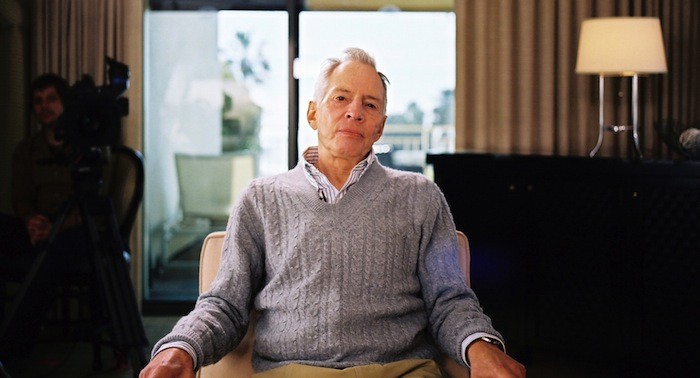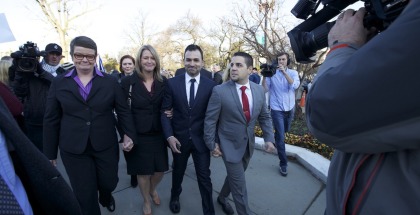UK TV review: The Jinx (spoilers)
Review Overview
Presentation
8Subject
9Ivan Radford | On 21, May 2015
This spoiler-filled review was first published on 21st May 2015 and is based on the final three episodes of Season 1. For a spoiler-free review based on the first three episodes, click here.
“I did not knowingly, purposely lie.”
After its juicy opening three episodes, The Jinx continues its exploration of Robert Durst’s alleged killings with a surprising one-two punch of suspicion and sympathy.
We begin in Episode 4 in Galveston, where Durst is charged with the murder of his neighbour, Morris Black. It’s a case that Americans will remember vividly, but for UK audiences, the HBO documentary’s detailed walk through the trial sets up a tense finale.
“I was Mr. Bob in prison,” recalls Durst, who seems to be warming to his role as interview-cum-narrator. “They all treated me with enormous respect,” he insists, even though Andrew Jarecki reveals that he wet the bed during his time in the cell. Most ill-fitting of all, though, is his apparently candid comments about his own jealousy of his jailmates.
“Whatever they did they accomplished on their own; I’ll never have that. No matter what I’ll do, I’ll always start off being rich,” he comments.
It’s the kind of thing that seems almost purposefully included to set your gut feelings against the guy: after his blase attitude regarding his wife’s disappearance in the previous three hours, it’s hard to have any kind thoughts about him at all. How, then, did a jury acquit him all those years ago?
What emerges is a shrewd, smart defence from his attorneys, who plead a plausible self-defence argument. More importantly, they make a distinction between killing someone and dismembering someone. For all the craft loopholes, though, it’s the media and public opinion that ultimately winds up in Durst’s favour: Jarecki cuts together increasingly sensationalised tabloid coverage, ranging from Robert’s cross-dressing to his “dead wife’s pal”.
The onslaught of salivating press coverage recalls the attitude taken by the film-makers themselves: during a debate about being unable to prove what happened with the gun, we see a dramatic reconstruction of Durst shooting Black without question. As Robert takes to the stand and the jury laughs at a joke he makes, the contrast to the monster we’ve grown to think of him as is unexpectedly humanising.
If the opening was uneasily biased, Jarecki ultimately emerges as a clever manipulator of our affections, cutting between grisly details and legal battles, raw confessions and newspaper headlines, until we find it hard to believe either side of the argument. The slow mounting of the case against him for Susan Berman (surrounding the handwriting on the letter that misspelled “Beverley Hills”) provides ample opportunitity for the series to play with that ambiguity.
At the centre of is a canny use of microphones, which Jarecki leaves running throughout his interviews to catch any off-camera remarks. Suddenly, we find ourselves hanging on the smallest word for a clue of what this hard-to-read man is really thinking. “I did not knowingly, purposely lie,” he tells himself between conversations. How much is rehearsed? How much is just an old man rambling? Your verdict will determine how shocking you find the conclusion, but one thing is certain: The Jinx is a gripping exploration of perception as much as one man’s deception.




















